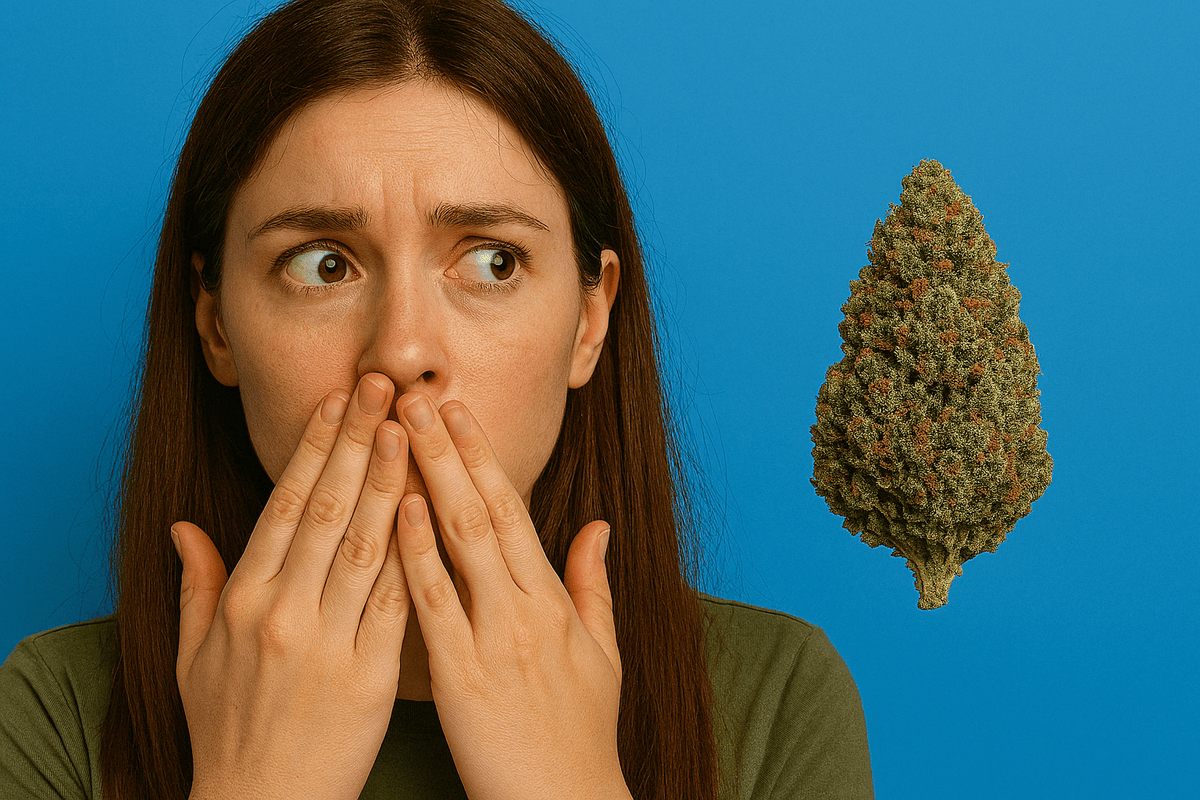
The dangers of CBD: side effects, contraindications and precautions
|
|
Playback time 5 min
|
|
Playback time 5 min
CONTENTS
Controversial, criticized by many, misunderstood by some or even dubious, CBD is a substance that is the talk of the town. As a result, questions surrounding the substance are numerous and recurrent, particularly concerning the health of users. Find out what science has to say about the potential dangers of CBD. Side effects, contraindications and precautions: we tell you everything!
Preconceived notion and lack of information available to the general public, you too may believe that CBD is a psychotropic drug, but it isn't! In fact, cannabis and all other hemp-based products contain just one psychoactive molecule, Tetrahydrocannabinol, also known by the acronym THC.
Cannabidiol is not a psychotropic and interacts with the body without altering the senses and reactions of the consumer. On the contrary, CBD is said to have a relaxing, soothing effect, without generating the "high" that THC does.
Among the long list of other misconceptions about CBD, one is that it's toxic. Do you know the definition of toxic? We'll tell you: a substance is considered toxic if it has a harmful effect on the body. Yet, once again, this is not the case with CBD, and this preconception is probably due to a lack of information.
Cannabidiol is absolutely not considered a toxic substance, and it's impossible to overdose on it. So, despite some mild side effects, which we'll mention below, CBD is not toxic.
To date, after several studies, no side effects have been attributed to CBD consumption. Officially, therefore, CBD has no side effects, although a minority of users have experienced mild discomfort after taking the molecule. Nothing serious or disabling, however.
Some of the most noticeable inconveniences reported include a a feeling of increased fatigue, or even mild headaches. Other consumers reported intestinal discomfort. Finally, some complained of a dry mouth and more intense thirst than usual. Nothing to worry about, is it?According to current scientific studies, CBD does not cause any serious health hazards. Nevertheless, here are a few possible risks:
The real risk here is buying low-quality CBD. To avoid unpleasant surprises, it's best to turn to hemp pros like Mama Kana. Their products are lab-tested, THC-free and of the highest quality.
According to theWorld Health Organization (WHO), CBD poses no risk of addiction or dependence. Unlike THC, it does not stimulate the brain's reward circuits, and can be used over the long term with no impact on addiction management.
A daily intake of CBD is generally well tolerated. CBD is renowned for its benefits. What benefits? Well, for some people, it improves sleep quality, reduces stress and soothes chronic pain.
But as with any supplement, it's essential to listen to your body. Start slowly and adjust as needed.
👉 Good news: CBD is neither addictive nor tolerant.
Although CBD can be consumed by the majority of adults, some people should avoid or limit their consumption, including:
And since CBD can cause slight drowsiness, it's best to avoid taking it before driving.
CBD can interfere with certain treatments and medications. Why should this be? Because its action on a liver enzyme (CYP450) plays a crucial role in the metabolism of many drugs. Here are a few drugs/treatments incompatible with CBD:
⚠️ If you are taking any medical treatment or have any doubts, talk to your doctor before consuming CBD. Even though it's natural, cannabidiol may interact with certain medications or medical conditions.
Since it is neither a narcotic nor addictive, nor does it have any disabling side effects, CBD is not harmful to health. Cannabidiol is even recognized as a promising substance for alleviating numerous ailments and even treating illnesses, including some very serious conditions. So, today, any adverse effects from CBD consumption have been ruled out.
At Ireland, there are no official reports clearly stating that CBD is not harmful, but none to the contrary either. In fact, the molecule has been completely legal to possess and consume since 2017.